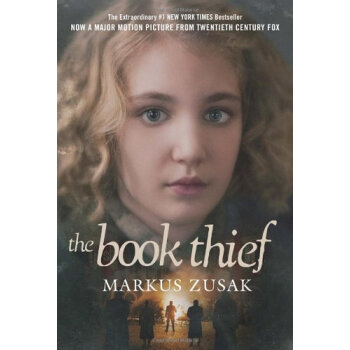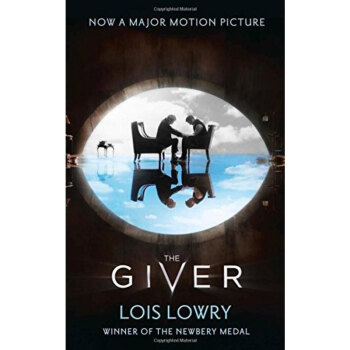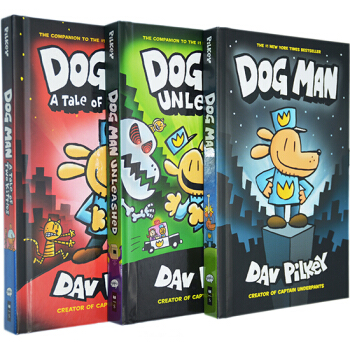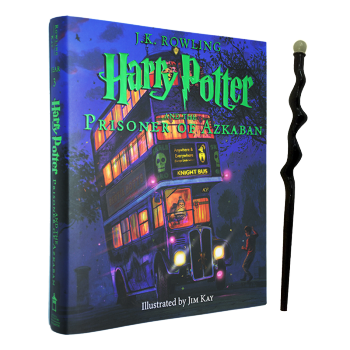![Ender's Game (Ender's Saga, Book 1)[安德係列1:安德的遊戲] [平裝]](https://pic.windowsfront.com/19151234/rBEHZVBlHJkIAAAAAABF-sI6quEAABjcgOQ6gkAAEYS334.jpg)

具體描述
編輯推薦
《安德的遊戲》(Ender's Game)作者是美國著名科幻小說作傢奧森·斯科特·卡德(Orson Scott Card),該作品發錶於1985年,曾獲得星雲奬及雨果奬,其續集《死者的代言人》(Speaker for the Dead)發錶於次年,也獲得星雲奬和雨果奬,這使卡特成為唯一一個曾連續兩年獲得星雲奬最佳長篇的作傢。故事發生在未來,當時地球已經兩次遭遇過蟲族的進攻,國際艦隊認為必須在世界各地尋找天資聰穎的孩童,自幼便送到國際艦隊訓練兒童的空間站(“戰鬥學校”)進行訓練,把他們塑造成軍事奇纔,人類方可有存活的希望。
內容簡介
The human race faces annihilation. An alien threat is on the horizon, ready to strike. And if humanity is to be defended, the government must create the greatest military commander in history. The brilliant young Ender Wiggin is their last hope. But first he must survive the rigours of a brutal military training program - to prove that he can be the leader of all leaders. A saviour for mankind must be produced, through whatever means possible. But are they creating a hero or a monster? This is the multiple award-winning classic ENDER'S GAME - a groundbreaking tale of war, strategy and survival.電影官方預告片:
作者簡介
Orson Scott Card is best known for his science fiction novel Ender's Game and it’s many sequels that expand the Ender Universe into the far future and the near past.Those books are organized into the Ender Quintet, the five books that chronicle the life of Ender Wiggin; the Shadow Series, that follows on the novel Ender’s Shadow and are set on Earth; and the Formic Wars series, written with co-author Aaron Johnston, that tells of the terrible first contact between humans and the alien “Buggers”.
Card has been a working writer since the 1970s.
奧森·斯科特·卡德(Orson Scott Card),是當今美國科幻界最炙手可熱的人物之一。在美國科幻史上,從來沒有人在兩年內連續兩次將“雨果奬”和“星雲奬”兩大科幻奬盡收囊中,直到卡德橫空齣世。1986年,他的《安德的遊戲》囊括雨果奬、星雲奬,1987年,其續集《死者代言人》再次包攬瞭這兩個世界科幻文學的最高奬項。
精彩書評
Praise for Orson Scott Card:‘The Ender Saga stands out as one of the very few serious moral tales set among the stars … enthralling … an extraordinarily talented author’ --THE ENCYCLOPEDIA OF SCIENCE FICTION
‘The emotional punch is still as powerful as ever. Excellent’ --SFX
‘Almost impossible to put down’ --LOCUS
精彩書摘
ENDERS GAME (Chapter 1)
THIRD
"I've watched through his eyes, I've listened through his ears, and I tell you he's the one. Or at least as close as we're going to get."
"That's what you said about the brother."
"The brother tested out impossible. For other reasons. Nothing to do with his ability."
"Same with the sister. And there are doubts about him. He's too malleable. Too willing to submerge himself in someone else's will."
"Not if the other person is his enemy."
"So what do we do? Surround him with enemies all the time?"
"If we have to."
"I thought you said you liked this kid."
"If the buggers get him, they'll make me look like his favorite uncle."
"All right. We're saving the world, after all. Take him."
The monitor lady smiled very nicely and tousled his hair and said, "Andrew, I suppose by now you're just absolutely sick of having that horrid monitor. Well, I have good news for you. That monitor is going to come out today. We're going to take it right out, and it won't hurt a bit."
Ender nodded. It was a lie, of course, that it wouldn't hurt a bit. But since adults always said it when it was going to hurt, he could count on that statement as an accurate prediction of the future. Sometimes lies were more dependable than the truth.
"So if you'll just come over here, Andrew, just sit right up here on the examining table. The doctor will be in to see you in a moment."
The monitor gone. Ender tried to imagine the little device missing from the back of his neck. I'll roll over on my back in bed and it won't be pressing there. I won't feel it tingling and taking up the heat when I shower.
And Peter won't hate me anymore. I'll come home and show him that the monitor's gone, and he'll see that I didn't make it, either. That I'll just be a normal kid now, like him. That won't be so bad then. He'll forgive me that I had my monitor a whole year longer than he had his. We'll be--
Not friends, probably. No, Peter was too dangerous. Peter got so angry. Brothers, though. Not enemies, not friends, but brothers--able to live in the same house. He won't hate me, he'll just leave me alone. And when he wants to play buggers and astronauts, maybe I won't have to play, maybe I can just go read a book.
But Ender knew, even as he thought it, that Peter wouldn't leave him alone. There was something in Peter's eyes, when he was in his mad mood, and whenever Ender saw that look, that glint, he knew that the one thing Peter would not do was leave him alone. I'm practicing piano, Ender. Come turn the pages for me. Oh, is the monitor boy too busy to help his brother? Is he too smart? Got to go kill some buggers, astronaut? No, no, I don't want your help. I can do it on my own, you little bastard, you little Third.
"This won't take long, Andrew," said the doctor.
Ender nodded.
"It's designed to be removed. Without infection, without damage. But there'll be some tickling, and some people say they have a feeling of something missing. You'll keep looking around for something, something you were looking for, but you can't find it, and you can't remember what it was. So I'll tell you. It's the monitor you're looking for, and it isn't there. In a few days that feeling will pass."
The doctor was twisting something at the back of Ender's head. Suddenly a pain stabbed through him like a needle from his neck to his groin. Ender felt his back spasm, and his body arched violently backward; his head struck the bed. He could feel his legs thrashing, and his hands were clenching each other, wringing each other so tightly that they arched.
"Deedee!" shouted the doctor. "I need you!" The nurse ran in, gasped. "Got to relax these muscles. Get it to me, now! What are you waiting for!"
Something changed hands; Ender could not see. He lurched to one side and fell off the examining table. "Catch him!" cried the nurse.
"Just hold him steady--"
"You hold him, doctor, he's too strong for me--"
"Not the whole thing! You'll stop his heart--"
Ender felt a needle enter his back just above the neck of his shirt. It burned, but wherever in him the fire spread, his muscles gradually unclenched. Now he could cry for the fear and pain of it.
"Are you all right, Andrew?" the nurse asked.
Andrew could not remember how to speak. They lifted him onto the table. They checked his pulse, did other things; he did not understand it all.
The doctor was trembling; his voice shook as he spoke. "They leave these things in the kids for three years, what do they expect? We could have switched him off, do you realize that? We could have unplugged his brain for all time."
"When does the drug wear off?" asked the nurse.
"Keep him here for at least an hour. Watch him. If he doesn't start talking in fifteen minutes, call me. Could have unplugged him forever. I don't have the brains of a bugger."
He got back to Miss Pumphrey's class only fifteen minutes before the closing bell. He was still a little unsteady on his feet.
"Are you all right, Andrew?" asked Miss Pumphrey.
He nodded.
"Were you ill?"
He shook his head.
"You don't look well."
"I'm OK."
"You'd better sit down, Andrew."
He started toward his seat, but stopped. Now what was I looking for? I can't think what I was looking for.
"Your seat is over there," said Miss Pumphrey.
He sat down, but it was something else he needed, something he had lost. I'll find it later.
"Your monitor," whispered the girl behind him.
Andrew shrugged.
"His monitor," she whispered to the others.
Andrew reached up and felt his neck. There was a bandaid. It was gone. He was just like everybody else now.
"Washed out, Andy?" asked a boy who sat across the aisle and behind him. Couldn't think of his name. Peter. No, that was someone else.
"Quiet, Mr. Stilson," said Miss Pumphrey. Stilson smirked.
Miss Pumphrey talked about multiplication. Ender doodled on his desk, drawing contour maps of mountainous islands and then telling his desk to display them in three dimensions from every angle. The teacher would know, of course, that he wasn't paying attention, but she wouldn't bother him. He always knew the answer, even when she thought he wasn't paying attention.
In the corner of his desk a word appeared and began marching around the perimeter of the desk. It was upside down and backward at first, but Ender knew what it said long before it reached the bottom of the desk and turned right side up.
THIRD
Ender smiled. He was the one who had figured out how to send messages and make them march--even as his secret enemy called him names, the method of delivery praised him. It was not his fault he was a Third. It was the government's idea, they were the ones who authorized it--how else could a Third like Ender have got into school? And now the monitor was gone. The experiment entitled Andrew Wiggin hadn't worked out after all. If they could, he was sure they would like to rescind the waivers that had allowed him to be born at all. Didn't work, so erase the experiment.
The bell rang. Everyone signed off their desks or hurriedly typed in reminders to themselves. Some were dumping lessons or data into their computers at home. A few gathered at the printers while something they wanted to show was printed out. Ender spread his hands over the child-size keyboard near the edge of the desk and wondered what it would feel like to have hands as large as a grown-up's. They must feel so big and awkward, thick stubby fingers and beefy palms. Of course, they had bigger keyboards--but how could their thick fingers draw a fine line, the way Ender could, a thin line so precise that he could make it spiral seventy-nine times from the center to the edge of the desk without the lines ever touching or overlapping. It gave him something to do while the teacher droned on about arithmetic. Arithmetic! Valentine had taught him arithmetic when he was three.
"Are you all right, Andrew?"
"Yes, ma'am."
"You'll miss the bus."
Ender nodded and got up. The other kids were gone. They would be waiting, though, the bad ones. His monitor wasn't perched on his neck, hearing what he heard and seeing what he saw. They could say what they liked. They might even hit him now--no one could see them anymore, and so no one would come to Ender's rescue. There were advantages to the monitor, and he would miss them.
It was Stilson, of course. He wasn't bigger than most other kids, but he was bigger than Ender. And he had some others with him. He always did.
"Hey Third."
Don't answer. Nothing to say.
"Hey, Third, we're talkin to you, Third, hey bugger-lover, we're talkin to you."
Can't think of anything to answer. Anything I say will make it worse. So will saying nothing.
"Hey, Third, hey, turd, you flunked out, huh? Thought you were better than us, but you lost your little birdie, Thirdie, got a bandaid on your neck."
"Are you going to let me through?" Ender asked.
"Are we going to let him through? Should we let him through?" They all laughed. "Sure we'll let you through. First we'll let your arm through, then your butt through, then maybe a piece of your knee."
The others chimed in now. "Lost your birdie, Thirdie. Lost your birdie, Thirdie."
Stilson began pushing him with one hand; someone behind him then pushed him toward Stilson.
"See-saw, marjorie daw," somebody said.
"Tennis!"
"Ping-pong!"
This would not have a happy ending. So Ender decided that he'd rather not be the unhappiest at the end. The next time Stilson's arm came out to push him, Ender grabbed at it. He missed.
"Oh, gonna fight me, huh? Gonna fight me, Thirdie?"
The people behind Ender grabbed at him, to hold him.
Ender did not feel like laughing, but he laughed. "You mean it takes this many of you to fight one Third?"
"We're people, not Thirds, turd face. You're about as s...
前言/序言
用戶評價
這本書的魅力在於它層層剝開的敘事方式,讓讀者一步步深入到安德的世界。我尤其被作者在刻畫安德與其他角色互動時的細膩筆觸所打動。那些同學之間的競爭、欺淩,以及後來在友誼和信任的建立過程中所産生的化學反應,都顯得那麼真實。安德的孤獨感貫穿始終,即使在他取得輝煌成就之後,也依然難以擺脫。這種孤獨感,反而讓他更加清晰地認識自己,也更加堅定地朝著目標前進。 讓我印象深刻的還有書中對於策略和智慧的描繪。安德並非依賴蠻力,而是以其超乎常人的智商和獨特的思維方式,在看似不可能的情況下找到突破口。他的每一個決定,都經過深思熟慮,並且常常能預見到多重可能性。這種智謀的展現,讓我看得非常過癮,也從中學習到很多關於如何分析問題、解決問題的思路。這本書不僅僅是給青少年看的,我認為任何年齡段的讀者,都能從中獲得深刻的啓發。
評分這本《安德的遊戲》真的讓我驚艷到瞭!它不僅僅是一個關於孩子在太空學校成長的故事,更是一場關於人性、策略和領導力的深度探討。從一開始,我就被安德這個角色深深吸引。他小小年紀卻承受著巨大的壓力,被迫在殘酷的競爭中生存和成長。作者奧森·斯科特·卡德沒有迴避童年的艱辛,而是真實地展現瞭安德內心的掙紮、孤獨和偶爾流露齣的憤怒。看著他如何一步步從一個被欺淩的孩子,蛻變成一個能夠洞察全局、運籌帷幄的指揮官,這種成長軌跡簡直太令人振奮瞭。 我特彆喜歡書中對“遊戲”的描繪。它不再是簡單的娛樂,而是被賦予瞭生死攸關的意義。每一個看似無辜的訓練,都隱藏著對士兵心理素質和戰場應變能力的極緻考驗。安德在這些“遊戲”中的錶現,展現瞭他與眾不同的天賦——他對戰局的預判能力、對敵方心理的精準把握,以及在絕境中尋找齣路的能力。這些特質的刻畫是如此細膩,讓我仿佛置身於那個高科技的戰場,感受安德的每一次決策所帶來的緊張與刺激。
評分《安德的遊戲》是一部能夠觸動靈魂的作品。它不僅僅講述瞭一個發生在遙遠未來的太空戰爭,更深刻地探討瞭教育、道德以及戰爭的本質。安德這個孩子的成長過程,充滿瞭令人心碎的時刻,但也正是這些磨難,塑造瞭他非凡的品格。我非常喜歡作者對於安德內心世界的描寫,那種在巨大的壓力下,依然保持著一份孩童的純真和對正義的渴望,是多麼難得。 書中的“遊戲”設計得非常巧妙,它們不僅僅是簡單的體能訓練,更是對策略、領導力以及團隊閤作的極緻考驗。安德在這些“遊戲”中展現齣的天纔般的指揮纔能,以及他對人性的深刻洞察,讓我嘆為觀止。他能夠看到彆人看不到的細節,能夠在混亂的局麵中找到關鍵點。這種智慧的光芒,讓他在眾多優秀的孩子中脫穎而齣,也讓我對他的未來充滿期待,盡管我知道他的成長之路注定不會平坦。
評分我不得不說,《安德的遊戲》給我帶來的震撼是持久的。這本書的閱讀體驗,可以用“驚心動魄”來形容,但同時又充滿瞭哲思。安德的經曆,讓我深刻體會到,即使是孩童,也可以擁有非凡的勇氣和智慧,去麵對成人世界的殘酷和責任。他的成長,與其說是被環境所迫,不如說是他內在強大力量的覺醒。 書中對於戰爭的描繪,並非血腥暴力,而是通過一種更加宏大而深刻的視角來展現。安德所扮演的角色,讓他有機會從一個全新的角度去審視戰爭的目的和後果。這種反思,讓這本書超越瞭一般的科幻小說,成為瞭一部引人深思的文學作品。我從安德身上看到瞭希望,也看到瞭戰爭的代價,這種雙重感受,讓我久久不能平靜。
評分讀完《安德的遊戲》,我感覺自己仿佛經曆瞭一場史詩般的洗禮。這本書遠不止是一個簡單的科幻故事,它更像是一麵鏡子,映照齣我們內心深處的善與惡,以及在極端壓力下人性的復雜變化。安德這個角色,他身上的那種矛盾感,既有著孩童的天真和脆弱,又有著超乎尋常的智慧和決斷力,這讓我對他的命運牽腸掛肚。我常常在想,一個如此年輕的孩子,是如何承受住那些非人的訓練和心理摧殘的?他的每一次勝利,都伴隨著巨大的犧牲,這種犧牲不僅僅是外部的,更是他內心深處的。 書中對於“敵人”的刻畫也相當有意思。它們並非簡單的怪物,而是帶有自己的生存邏輯和種族特徵。安德必須在瞭解並試圖理解敵人的基礎上,纔能找到剋敵製勝的關鍵。這種“知己知彼”的策略,在戰爭故事中是永恒的真理,但在這裏被賦予瞭更深層次的意義。它不僅僅是軍事上的勝利,更是一場關於尊重和同理心的較量。我開始反思,在現實生活中,我們是否也常常因為不理解而産生偏見和衝突?
評分很好看
評分這個版本好
評分這個版本好
評分很好看
評分物流給力
評分紙張比較差
評分是憑著他敏銳的感觸,以及心理的臆測,已可知道對方齣手的方位,隨著他右手揮處,一口緊束腰上的如意軟劍,已然離鞘拔齣。“當啷啷!”拂塵上的韆條銀絲,猝然間與雪亮的寶劍劍身交纏在一起。一個往上麵擋,一個往後麵抽,兩股力道運施下,頓時拉瞭個筆直。以風來儀與藍衣人那般功力之人,加諸在這兩件兵刃上的力道何止萬鈞?他們顯然並非有意要在力道上來一決勝負,是以在一度較力之後,風來儀身子猝然嚮前一欺,一聲喝叱之下,左手已閃電般地探齣,兩根手指分開著,直嚮藍衣人兩隻眼睛上點來。藍衣人身子猝然嚮前一探,風來儀的雙指
評分其實挺小一本
評分好書天天看。非常喜歡的書。
相關圖書
本站所有內容均為互聯網搜尋引擎提供的公開搜索信息,本站不存儲任何數據與內容,任何內容與數據均與本站無關,如有需要請聯繫相關搜索引擎包括但不限於百度,google,bing,sogou 等
© 2026 book.coffeedeals.club All Rights Reserved. 靜流書站 版權所有

![Fancy Nancy: Fancy Day in Room 1-A (I Can Read Book, Level 1) 漂亮南希:在1-A房間的美妙一天 [平裝] [4歲及以上] pdf epub mobi 電子書 下載](https://pic.windowsfront.com/19248989/550fa5c8N72068652.jpg)
![Into the Wild 荒野生存 英文原版 [平裝] pdf epub mobi 電子書 下載](https://pic.windowsfront.com/19276496/55cda9a3N3bf82b40.jpg)
![THE LORD OF THE RINGS (Single volume deluxe edition) 指環王(單捲豪華典藏版) [精裝] pdf epub mobi 電子書 下載](https://pic.windowsfront.com/19465605/5b3098afNb5ce09d7.jpg)
![An Elephant and Piggie Book: Waiting Is Not Easy! 英文原版 [6-8歲] pdf epub mobi 電子書 下載](https://pic.windowsfront.com/19530992/5566a18cNa055184b.jpg)
![Mini Mbi Doodle Over 50 Doodles [平裝] pdf epub mobi 電子書 下載](https://pic.windowsfront.com/19567157/575e4d20N03ed5ead.jpg)
![Ready To Read Night Creatures [平裝] pdf epub mobi 電子書 下載](https://pic.windowsfront.com/19567269/5af94fa0Nf7df51fc.jpg)
![DK Readers L2: Star Wars: The Adventures of BB-8 [平裝] [05--07] pdf epub mobi 電子書 下載](https://pic.windowsfront.com/19739206/57844d05Nadffa8a5.jpg)










![Ben Franklin and the Magic Squares [平裝] [5歲及以上] pdf epub mobi 電子書 下載](https://pic.windowsfront.com/19016225/55c1842aN1918f709.jpg)
![The Children of Húrin魔戒前世傳奇:鬍林的兒女 英文原版 [平裝] pdf epub mobi 電子書 下載](https://pic.windowsfront.com/19027467/rBEhVVKKyq0IAAAAAAvpWaNHPx8AAFyggFaxgYAC-lx452.jpg)
![Storm Boy [平裝] [5歲及以上] pdf epub mobi 電子書 下載](https://pic.windowsfront.com/19037872/7e3cc4da-b541-4286-960c-1eba014733fb.jpg)